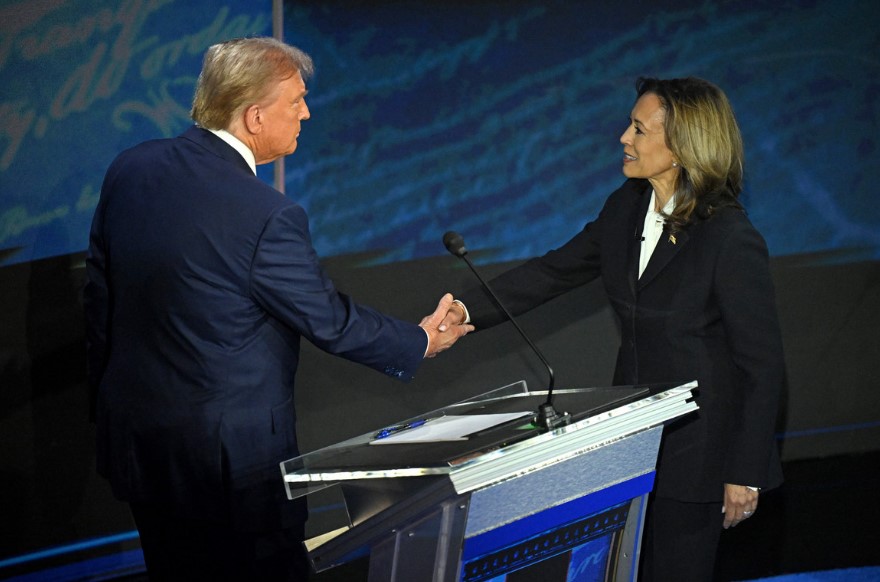A narrow victory in the U.S. elections could lead to multiple legal challenges and even political violence. This would be the third time in recent history that the U.S. has had a disputed result.
With less than two weeks until Election Day in the U.S., polls show that the gap between Kamala Harris and Donald Trump has further narrowed in the battleground states. A fierce contest has ensued as each campaign tries to boost voter turnout. In such a close race, this will be decisive. However, in an election that many Americans consider existential for the country’s future, a narrow victory on either side will increase the risk of a disputed election.
Many Americans are pessimistic about democracy’s ability to deliver a reliable result. Two-thirds of Republican voters continue to believe that the 2020 election was stolen from Donald Trump, and for many of them, Joe Biden’s inauguration may have shown the weakness, not the strength, of American democracy.
This environment has contributed to widespread expectations of a disputed election and prompted preparations for the possibility of a delayed result. Political misinformation and deep polarization across the country could mean that a narrow victory leads to multiple legal challenges and even political violence.
The question of how quickly and reliably election votes are confirmed has become a battleground. In 2022, 22 county officials in key states voted to delay certification. Democrats have noted with concern that this year, around 70 pro-Trump election “deniers” are positioned to review results in swing states.
Those nervous about the possibility of overturning close votes will be watching to see if Republicans retain or increase their majority in the House of Representatives, as the newly elected House will decide who holds the gavel when the joint session of Congress is held to certify the U.S. presidential election results. Republican control of the House could give the former president more leverage to influence this vote.
Resilient Democracy
However, there should be room for optimism. Democracy in America has been incredibly resilient. In 2016, Democrats swallowed their unease about Donald Trump’s election. Despite rumors of Russian interference in the election, they accepted the election result. Four years later, the U.S. is much more polarized, trust in institutions has decreased, and the election challenges reflect that. The Trump campaign filed more than 60 lawsuits in 9 states challenging election processes and voter certification. In every single case, the courts upheld the results. After the January 6th Capitol riot, Congress returned to its chambers and confirmed the election results the same day.
If fears of new disputed elections materialize, it will be the third time in recent history that the U.S. has struggled to confirm a result. In 2000, the Supreme Court intervened to decide the recount in Florida, effectively handing victory to George W. Bush—a memory that, along with the Capitol riots on January 6th, contributes to America’s anxiety ahead of Election Day.
International Response
The U.S. partners and rivals may be ill-prepared for disputed elections. If Trump or Harris, or both, declare victory before it is clearly resolved, world leaders will need to decide how to react. Diplomatic protocol may require leaders to wait until the U.S. confirms the results through official channels, but there is concern that not everyone will follow these rules.
Some in Europe, for example, fear that Hungarian Prime Minister Viktor Orban might be inclined to accept Trump’s victory before it is fully confirmed. Given that Hungary currently holds the presidency of the Council of the European Union, this could create external confusion. It could also create conflict within the European Union and force a compromise between a divided EU or collectively preemptively recognizing Trump as president.
A stalled decision could also create room for political, and even military, opportunism from America’s adversaries in a dangerous and uncertain time in international affairs. The credibility of the U.S. commitment to dual deterrence against Iran and Israel, or China and Taiwan, is already in question. A stalled transition could further diminish the credibility of American deterrence until the next president is firmly in place.
America’s ability to conduct free and fair elections is important for international peace and stability. It is also symbolically important for confidence in American leadership and for global prospects of democracy. Elections are the most visible sign of the health of democracy. This is America’s choice, but it is also America’s chance to show that even in a deeply divided society, its democracy can still deliver results—especially when the rest of the world is watching.

